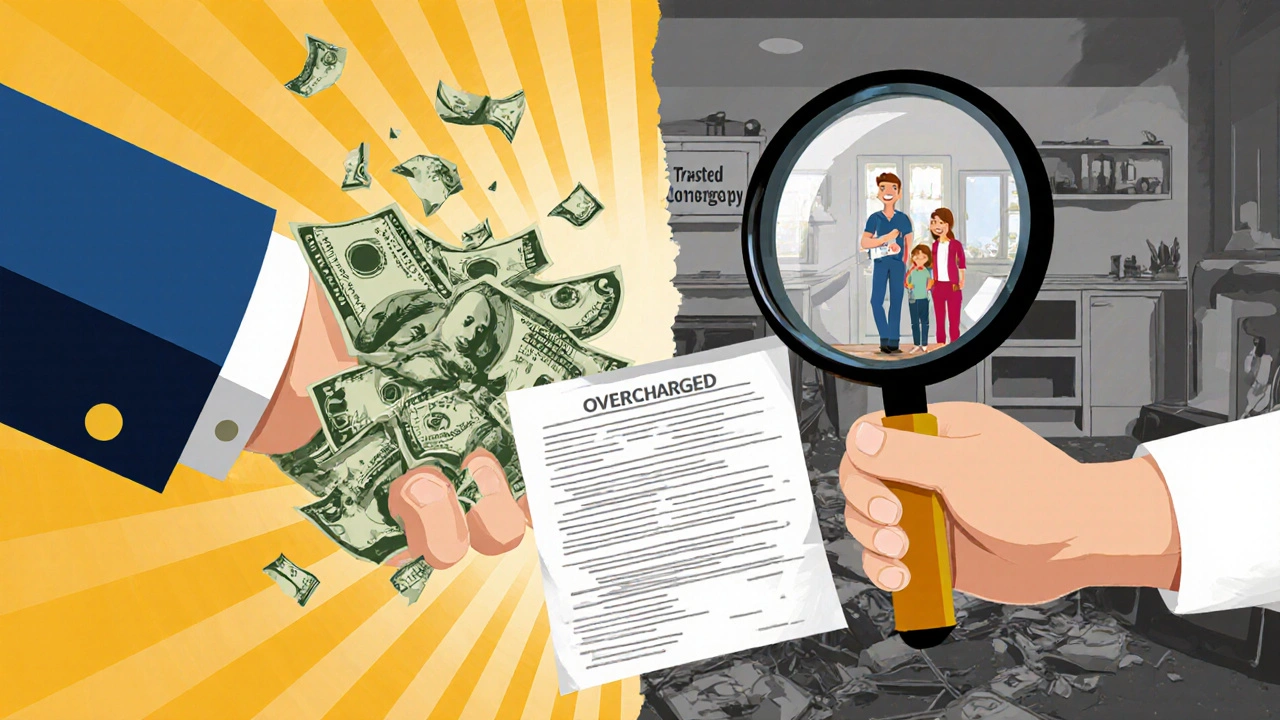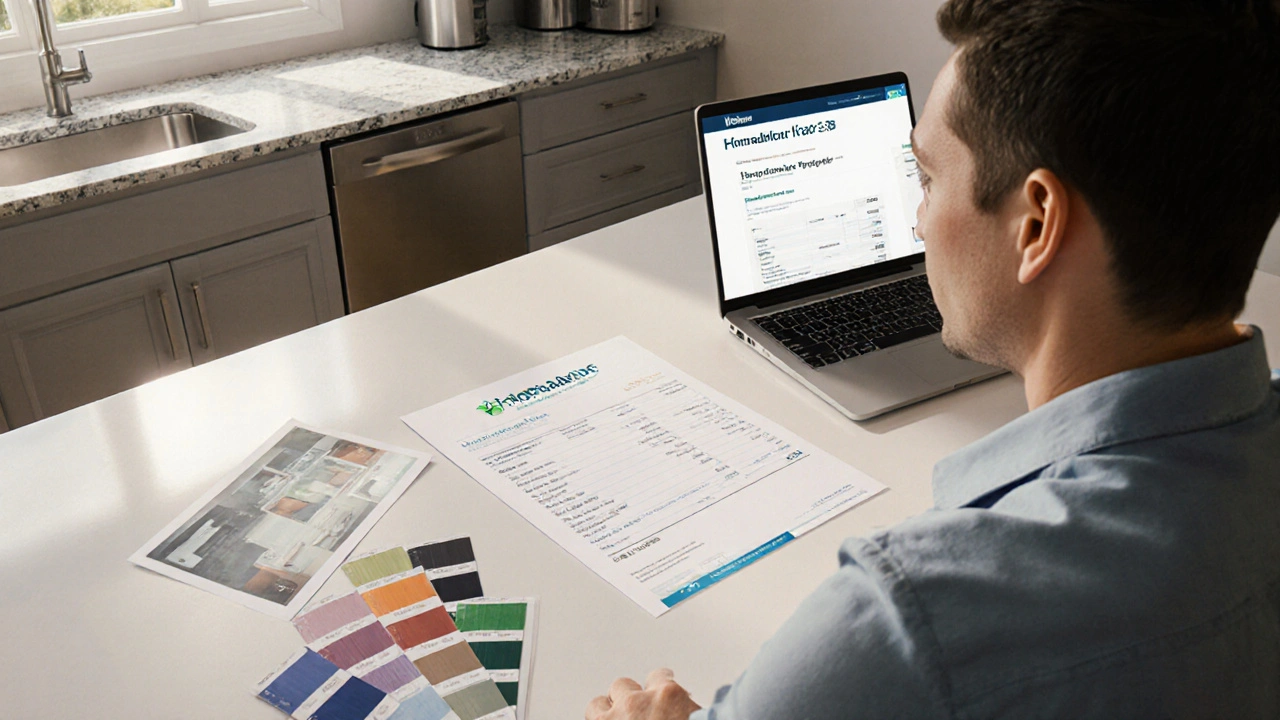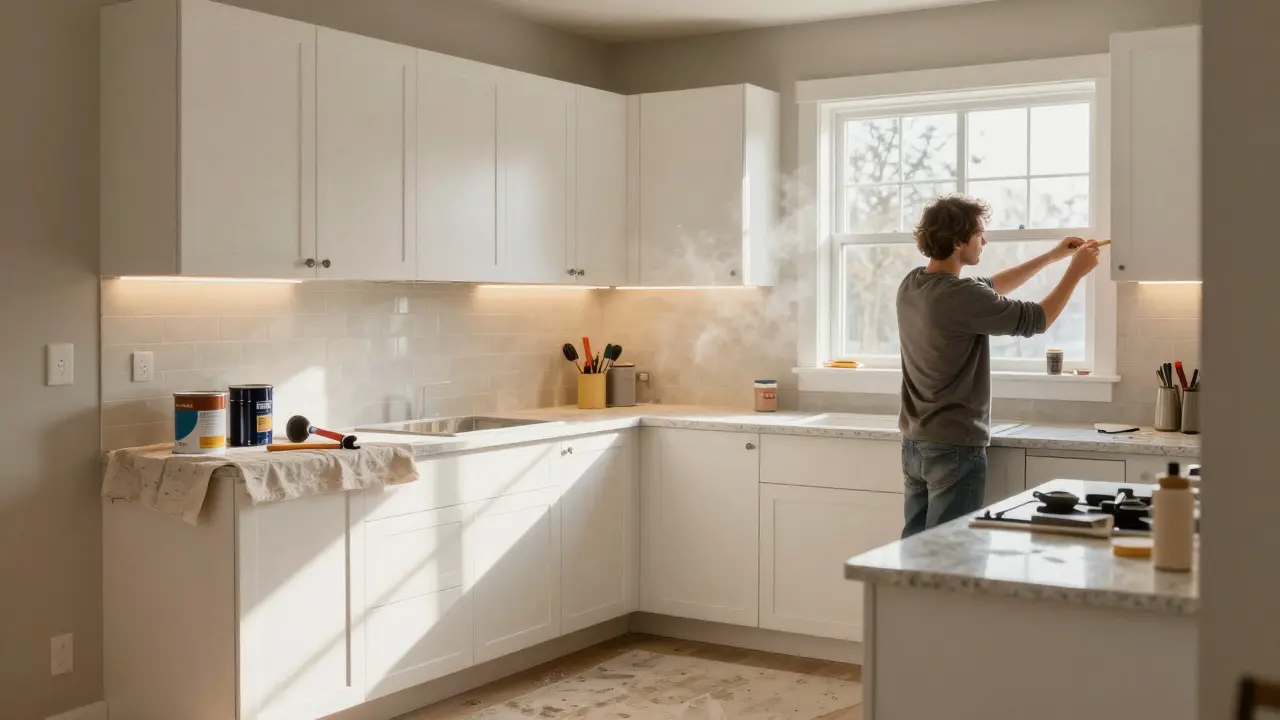You’ve spent weeks researching modern kitchen designs, pinning ideas on Pinterest, and visiting showrooms. You finally found a contractor who gets your vision-until they hand you the quote. $45,000? For a 200-square-foot kitchen? Your stomach drops. You know something’s off. But how do you say it without sounding cheap or burning bridges?
First, know what a fair price looks like
Before you open your mouth, get grounded in reality. A modern kitchen renovation in 2025 averages between $25,000 and $40,000 for a mid-range upgrade in most U.S. cities. That includes new cabinets, quartz countertops, energy-efficient appliances, plumbing, and electrical work. If your kitchen is 250 sq ft or smaller and you’re not doing structural changes, anything over $40,000 needs serious scrutiny.Here’s what drives the cost up: custom cabinetry ($15,000-$25,000), high-end appliances like Sub-Zero or Wolf ($8,000-$15,000), and premium finishes like natural stone or hand-glazed tiles. If your contractor’s quote includes all of that, fine. But if they’re charging $45,000 for stock cabinets, laminate countertops, and a standard range? That’s not premium-it’s padded.
Check the HomeAdvisor 2025 Renovation Cost Report. It breaks down average labor and material costs by region. A contractor in Austin might charge 15% more than one in Cincinnati, but not double. Use this data as your baseline.
Break down the quote line by line
Never accept a lump sum. Ask for a detailed line-item breakdown. A professional contractor will give you this without hesitation. Look for these red flags:- Materials marked up more than 25% over retail (e.g., $120/sq ft quartz when Home Depot sells it for $85)
- Labor hours that don’t match industry standards (a full kitchen remodel should take 6-8 weeks with two workers)
- Vague terms like "miscellaneous fees" or "contingency" over 10%
- Identical line items listed twice under different names
One client in Portland found their contractor charged $3,200 for "demolition services"-but the quote didn’t include hauling away debris. When they asked, the contractor said, "That’s extra." Hauling is standard. That’s a bait-and-switch.
Compare at least three bids
Don’t trust your gut alone. Get three written estimates from licensed contractors with good reviews. Don’t pick the lowest. Pick the most transparent.Here’s what a fair bid should include:
- Exact brand and model numbers for appliances, cabinets, and fixtures
- Clear timeline with start and end dates
- Payment schedule tied to milestones (not 50% upfront)
- Warranty details for workmanship and materials
If one bid is 20% higher than the others and lacks detail, it’s not "premium service." It’s overcharging. You’re not being rude to ask why.

How to bring it up without sounding confrontational
Timing matters. Don’t ambush them. Say something like:"I really appreciate the time you’ve put into this plan. I’m excited about the design. But when I compared it to two other bids, I noticed a $12,000 difference. I want to make sure I’m understanding what’s included. Can we walk through the quote together? I’d love to see where the extra cost is going."
This works because you’re:
- Complimenting their work
- Showing you’ve done your homework
- Asking for clarity, not accusing
- Leaving room for them to explain or adjust
Most contractors will either:
- Adjust the price after reviewing the line items
- Explain why their materials or labor are better (and you can decide if it’s worth it)
- Walk away-because they were overcharging
That last one? Good. You just saved yourself $12,000.
What to do if they refuse to budge
If they dig in and won’t explain or lower the price, here’s your next move:- Ask for a 10% discount if you pay upfront in full
- Offer to source your own materials (cabinets, tile, lighting) and have them install
- Request a phased approach-do cabinets and countertops now, appliances later
One homeowner in Seattle saved $8,000 by buying their cabinets directly from a local cabinet maker and paying the contractor just $3,500 to install them. The contractor made less, but got paid faster and avoided markup headaches.
If they still won’t move? Thank them for their time and walk away. You’re not losing money-you’re avoiding a costly mistake.

Signs you’re dealing with a shady contractor
Not all high prices are scams. But here are warning signs you’re being taken:- They pressure you to sign within 24 hours
- They don’t have a physical office or licensed contractor number
- They ask for cash only
- They refuse to provide references from past kitchen jobs
- They say "everyone charges this much"-that’s a dodge, not an explanation
Check their license at your state’s contractor licensing board website. A quick search can save you thousands.
What to do after you negotiate
Once you’ve agreed on a price, get everything in writing. No verbal promises. No "I’ll email you the change." Update the contract. Initial any changes. Date and sign.Keep a copy of the original quote and the revised one. If something gets missed later, you have proof.
And here’s a pro tip: Pay in stages. 10-20% upfront, 30-40% at rough-in (plumbing/electrical), 30-40% after cabinets and countertops are installed, and the final 10-20% only after everything’s done, cleaned, and you’ve inspected it.
Never pay the full amount until you’re 100% satisfied. That’s your leverage.
Why this matters beyond the money
A kitchen renovation isn’t just about cabinets and countertops. It’s about trust. If a contractor won’t be transparent about pricing, they won’t be transparent about timelines, quality, or problems that arise. You want someone who answers your questions calmly, shows you options, and respects your budget.The right contractor will thank you for asking questions. The wrong one will make you feel guilty for caring about your money. Choose the one who respects you.


